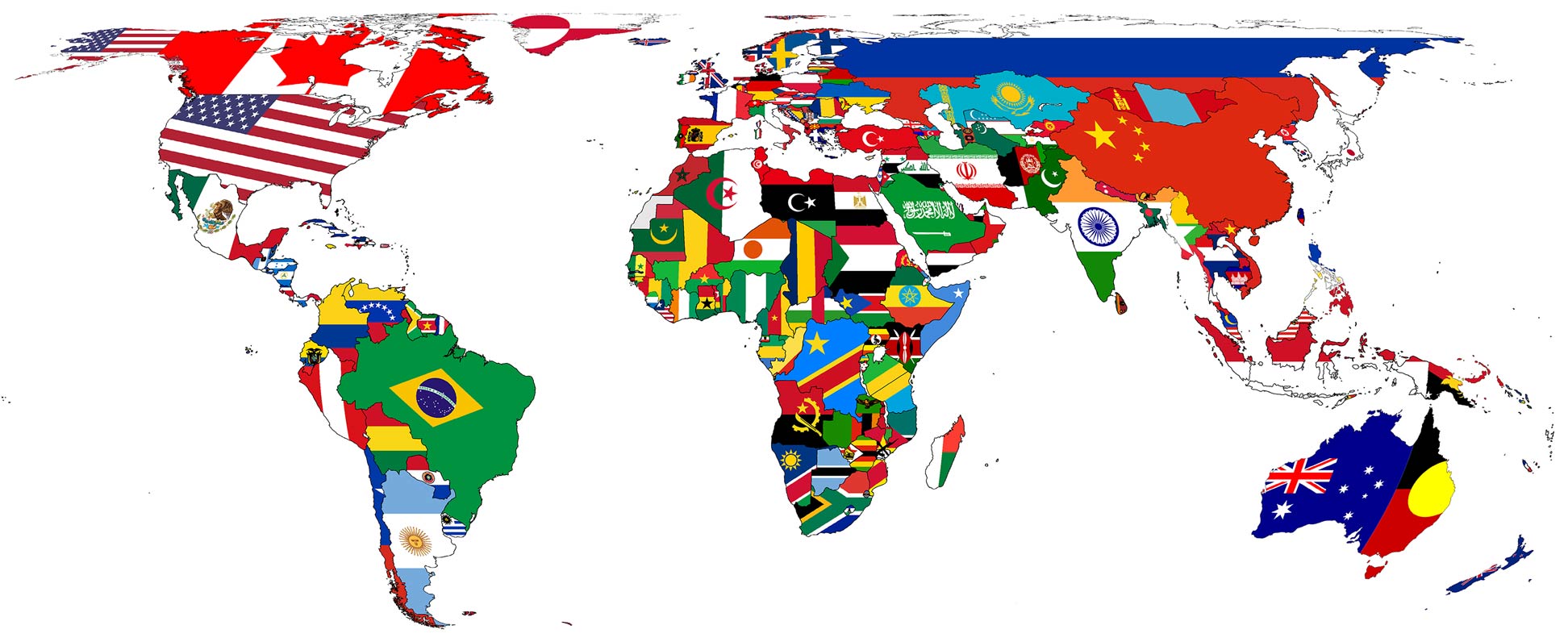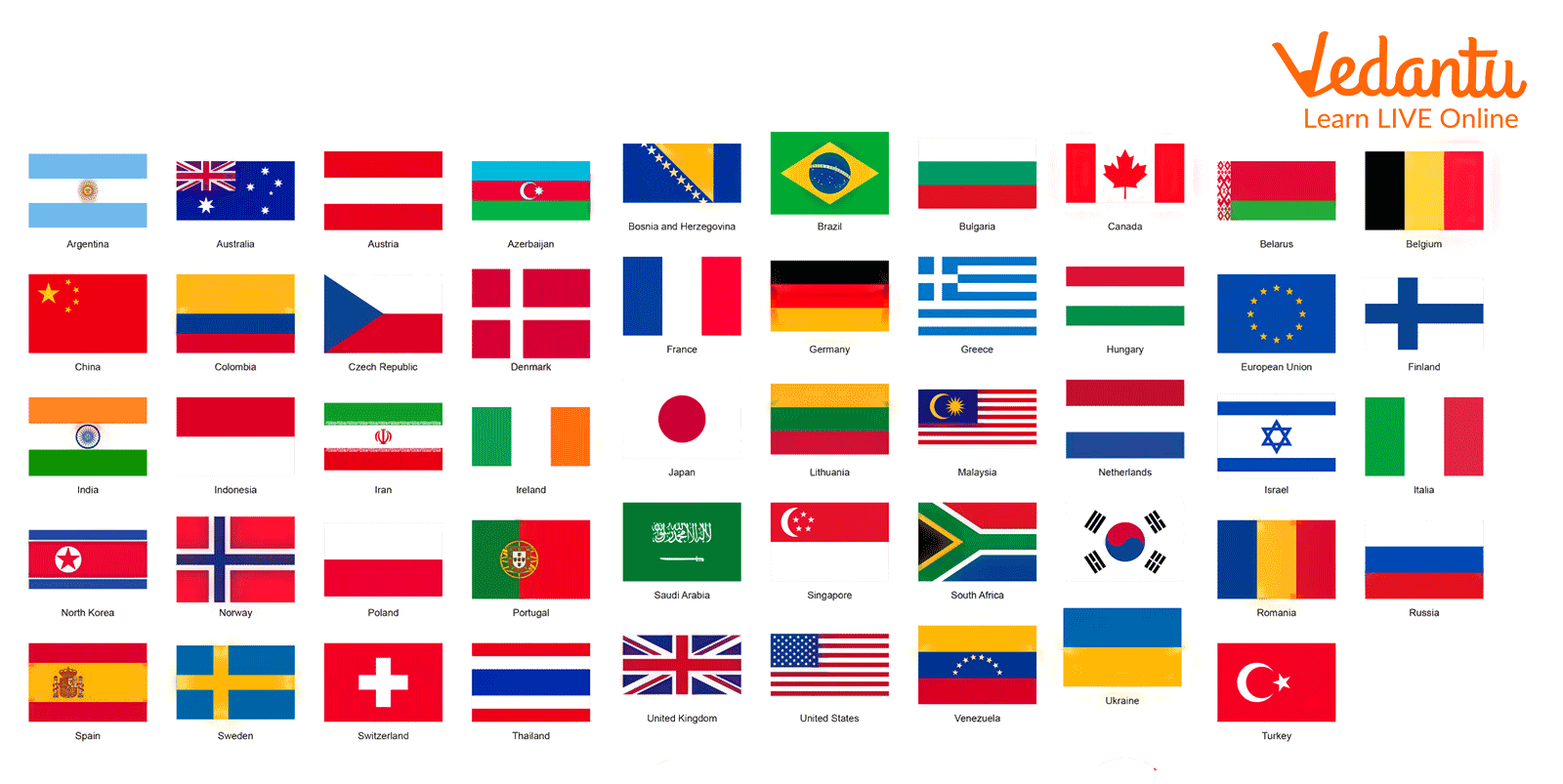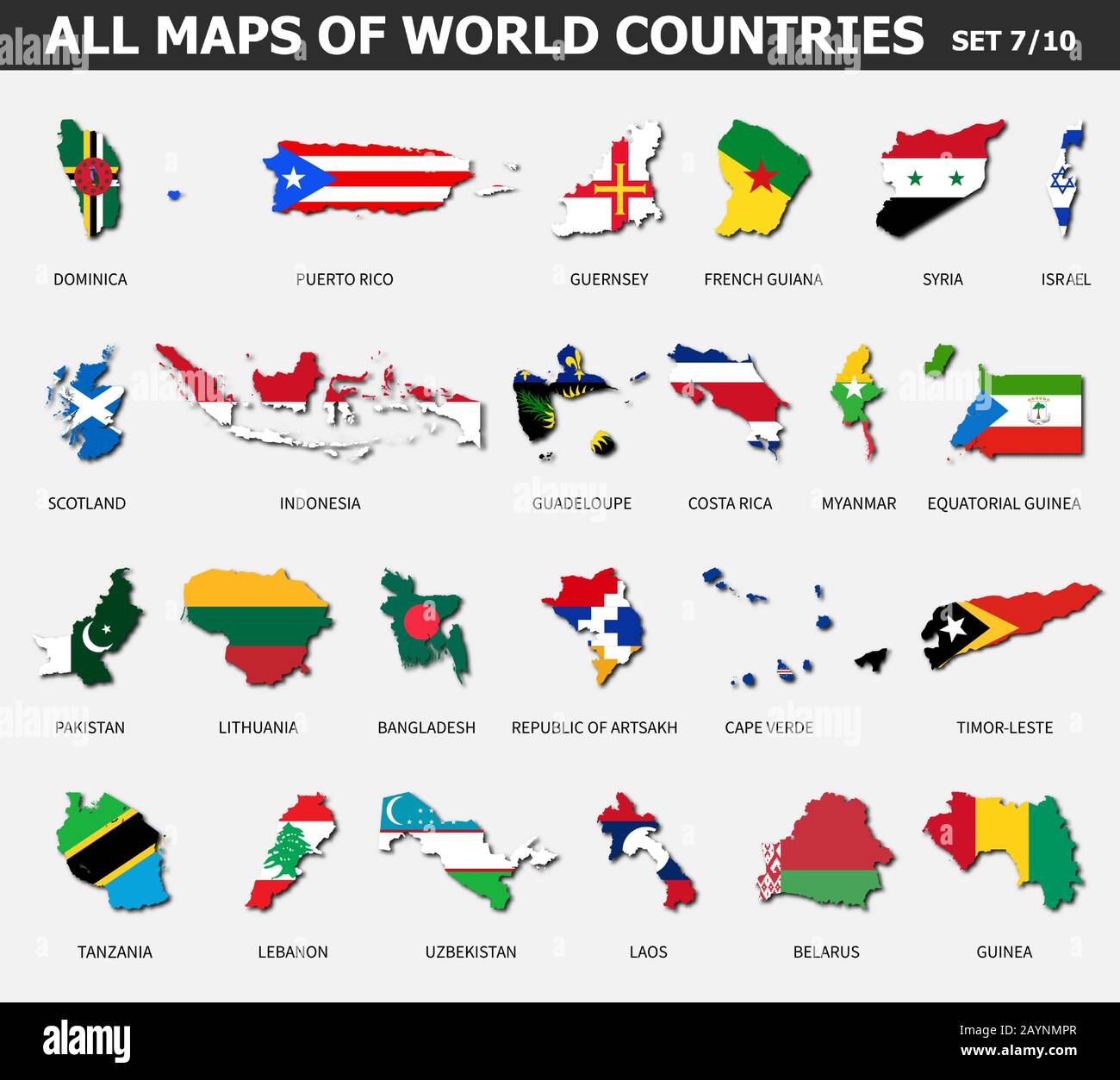- Introduction
- Celebrating Traditions - Which Country Has Most National Holidays?
- How Do We Define a "National Holiday" - Which Country Has Most National Holidays?
- Where Do Holidays Come From - Which Country Has Most National Holidays?
- Who Tops the List of Which Country Has Most National Holidays?
- Other Nations with Many Public Celebrations - Which Country Has Most National Holidays?
- What About the Word "Country" - Which Country Has Most National Holidays?
- The Nuance of "Country" in Different Contexts - Which Country Has Most National Holidays?
Introduction
Pretty much every culture and land area around the world takes time to observe special days, often called holidays. These moments are, you know, a way for people to come together and mark significant events or traditions that mean a lot to them. It's interesting to see how different places approach this, with some nations setting aside a great many days for public celebrations, while others keep their list of official days off a bit shorter. This variety, basically, shows how each place has its own rhythm and priorities when it comes to taking a collective break.
In some parts of the globe, you might find that public holidays are quite abundant, truly reflecting a rich mix of local customs, spiritual practices, and moments from history. These special days, sometimes known as national holidays, are generally times when many businesses and other places of work close their doors. This allows everyone to participate in the day's meaning, which could be, you know, remembering an important historical event or observing a particular religious celebration. It's a pretty common way for governments and the general public to acknowledge these significant occasions.
Then again, some nations, like the United States, tend to have fewer public holidays. Their focus is often, in a way, on just the really big, well-known national celebrations. This difference in the number of days off can, naturally, tell us a lot about a country's approach to work-life balance, its historical emphasis, or even its diverse population. So, it's almost a little window into the heart of a nation, showing what it values enough to take a collective pause. Many people have, as a matter of fact, wondered which countries truly lead the way in terms of the most public holidays each year.
- What Happened To Betsy Woodruff Swan
- Tattoos On Arms Female
- Two Truths And A Lie Ideas
- Ivan Moody Military
- Raw Confession
Celebrating Traditions - Which Country Has Most National Holidays?
Across the world, you know, various nations truly enjoy a great many public holidays. Each of these days, essentially, mirrors their own unique ways of life, their spiritual beliefs, and their long, storied pasts. These public holidays, which are also often called national holidays, are more or less special occasions. They are times when, typically, most places of business and other institutions are not open. This day is, for the most part, officially recognized by the government and the general population, usually to honor a piece of history or to observe a spiritual gathering.
When it comes to truly embracing long-standing customs and showing a sense of national pride, some nations really go above and beyond. These particular special moments offer, in a way, a welcome pause from the usual daily routine. They give people a chance to step back, to connect with their community, and to participate in shared experiences. It's almost as if the calendar itself becomes a reflection of the collective spirit and the things that matter most to the people living there. So, the sheer number of these days can tell us quite a bit about a place.
Public holidays, you know, are like a very vibrant cloth woven across the entire globe. Each separate nation, it seems, has its own special collection of these days. This collection, basically, shows off its rich cultural background, its spiritual views, and its historical journey. This article, in fact, looks at the nations with the highest count of public holidays around the world. These days are set aside to celebrate truly important historical happenings, spiritual events, and cultural moments. It’s a way of marking time that, for many, is deeply meaningful.
- Milo Manheim Young
- Son And Stepmother
- Most Paid Nil Athlete
- Abuja Airport Nigeria
- Andy Cohen And Partner
How Do We Define a "National Holiday" - Which Country Has Most National Holidays?
So, what exactly makes a day a "national holiday"? It's a good question to ask when we are trying to figure out which country has most national holidays. Basically, a national holiday is a day when, you know, the majority of businesses and other places like schools or government offices are not open. This day is, as a matter of fact, given official recognition by the government, and the people often acknowledge it as well. The main purpose is usually to remember something from history or to observe a religious celebration that is important to the community.
These special days, in a way, serve a few key purposes. They give people a chance to rest and spend time with their loved ones, but they also act as moments for collective memory and shared identity. For instance, a day might be set aside to commemorate a significant event that shaped the nation, or it could be a time for spiritual reflection and community gatherings. It's almost like a pause button on the everyday, allowing for a broader focus on what binds people together. This official acknowledgment means that the day has a particular weight and meaning for the entire country, which is pretty significant.
The very nature of these holidays, you know, can vary quite a bit from one place to another. Some might be purely historical, marking a nation's founding or a pivotal moment in its past. Others might be deeply rooted in spiritual traditions, celebrating festivals or holy days. Then there are those that simply, in a way, offer a chance for people to enjoy a long weekend. But the common thread is that they are days of collective pause, agreed upon by the wider society and its leaders. This shared understanding is, basically, what makes them "public" or "national."
Where Do Holidays Come From - Which Country Has Most National Holidays?
So, where do all these special days, these public holidays, actually originate? When we think about which country has most national holidays, it's useful to consider the roots of these celebrations. Many of them, you know, come from a country's deep cultural setting. This means that the various groups of people and spiritual communities who live there often contribute to the calendar of celebrations. It's almost like a reflection of the many different traditions that call a particular place home, each adding its own unique flavor to the yearly schedule.
For example, the text mentions that the high number of holidays in one particular country can be put down to its very diverse cultural makeup. This is because, apparently, many different groups of people, each with their own background and spiritual practices, live side by side. Each of these communities might have its own important days, and when all these are recognized, the total number of holidays can become quite large. It's a bit like a mosaic, where each piece adds to the overall picture of celebration, making the calendar quite full.
The nature of holidays in a place like India, for instance, really connects with its rich culture, its national principles, and its spiritual beliefs. This suggests that the reasons for observing these days are deeply intertwined with the very fabric of the society. They are not just random days off; they are, basically, meaningful expressions of who the people are and what they hold dear. This connection to core values and traditions is, in a way, a primary source for many of the public holidays we see around the world. It’s pretty clear that these days are about more than just a break.
Who Tops the List of Which Country Has Most National Holidays?
Many people have, you know, often wondered which countries truly stand out for having the greatest number of public holidays each year. It's a question that, in some respects, speaks to how different nations balance work and celebration. When we look at the information, one country frequently comes up as having a very impressive number of days off. This place, it seems, takes its celebrations quite seriously, offering its people many opportunities to pause and observe important moments throughout the year.
According to some details, Nepal is presented as the country that has the highest number of public holidays around the world. They are said to have a remarkable 35 such days every year. This means, essentially, that people in Nepal get a significant amount of official time away from their usual routines. This considerable number of holidays can be, basically, tied to the nation's varied cultural setting, as many different groups of people and spiritual communities live there. It's almost as if every part of their society contributes to a calendar full of festive occasions.
However, it's interesting to note that another piece of information from the provided text points to a different country. It states that one country has a staggering 61 public holidays, putting it in the very first position. This figure is, you know, significantly higher than the 35 mentioned for Nepal. This suggests there might be different ways of counting or different sources of information, but it certainly indicates a place with a truly immense number of days off. So, depending on which piece of information you consider, the answer to which country has most national holidays might vary slightly, which is a bit curious.
Other Nations with Many Public Celebrations - Which Country Has Most National Holidays?
While some countries might vie for the top spot, there are, of course, other nations that also enjoy a generous number of public holidays throughout the year. These places, too, offer their citizens many chances to celebrate and observe important cultural, historical, or religious events. It's not just about the absolute highest number; it's also about the widespread tradition of taking collective breaks. So, when we discuss which country has most national holidays, it's worth looking at others that have a significant count.
For instance, Cambodia is noted as a country that enjoys a substantial 28 public holidays each year. This is, in a way, a very considerable number, placing it quite high on the list of nations with many days off. These holidays, presumably, reflect Cambodia's own rich cultural heritage and historical journey, providing its people with numerous opportunities for national observance and communal festivities. It shows a calendar that is, basically, quite full of special dates for its citizens.
Then there is Argentina, which is mentioned as having 19 holidays within its 365-day year. This places Argentina as the eighth country in the world with what is described as an "extremely high" number of holidays. While 19 might seem less than 35 or 61, it's still, you know, a very respectable figure, indicating a nation that values its public celebrations. These examples really show the diverse range of how many public holidays different countries choose to observe, each reflecting its own unique blend of traditions and priorities.
What About the Word "Country" - Which Country Has Most National Holidays?
When we talk about "which country has most national holidays," it's interesting to pause and consider what we actually mean by the word "country." The term itself can have, you know, slightly different meanings depending on the situation. For example, in international law, the term "sovereign state" or simply "State" is often used to refer to a fully independent political entity. The word "country," in some respects, might carry a less formal or less "sovereign" meaning in certain contexts, which is a bit of a nuance to think about.
For instance, in the place where the English language originally came from, the United Kingdom, its own government's official website talks about the UK being made up of four "countries." This means that while the UK is one larger entity, it contains smaller units that are also called "countries." This can be a little confusing, you know, because it suggests that "country" isn't always about being a completely independent nation on the global stage. It shows that the word can also refer to distinct regions within a larger state, which is pretty interesting.
The English words "state," "nation," and "country" can have different implications depending on how they are used. The text mentions a quote from a former prime minister, David Cameron, who said: "Four nations in one country." In this specific example, the United Kingdom is referred to as the "country," while places like Scotland are called "nations." This really highlights how the word "country" can be used in a broader sense, encompassing multiple distinct "nations" or regions within its borders. It's a subtlety that, as a matter of fact, affects how we might think about national identity and holidays.
The Nuance of "Country" in Different Contexts - Which Country Has Most National Holidays?
So, does the word "country" also sometimes mean a region or an area, not just a fully independent nation? This is a question that, you know, comes up when we see how some international brands list places like Hong Kong or Taiwan separately when choosing a "country." While many dictionaries might primarily define "country" as a nation, some, like the Oxford Advanced Learner's Dictionary, do include a meaning that suggests it can refer to a region or an area. This adds a bit of complexity to our discussion of which country has most national holidays.
This difference in meaning is pretty important, especially when you are, say, trying to translate an address into English. Chinese addresses, for instance, are usually written from the largest unit to the smallest, like "X Country X Province X City X District X Road X Number." But in English, it's the opposite: "X Number, X Road, X District, X City, X Province, X Country." This reversal shows how the term "country" functions as the largest geographical unit in that context, even if it's just part of an address format, which is, basically, a practical application of the word.
Furthermore, when we look at news reports, you might sometimes see phrases like "country and territory." This raises the question of whether "country" and "territory" mean different things, or if they are used to cover different kinds of areas. This phrasing suggests that there are, you know, distinct categories for political or geographical units that are not always simply "countries" in the sense of sovereign states. It means that the scope of "country" can be, in a way, a bit more flexible than we might initially assume, covering various forms of land areas or political divisions.
- Where Did Dubai Get Its Money
- How Old Is Karen Gillan
- Esther Sermon
- Quotes About Starting New Job
- 60s Mod Hair



Detail Author:
- Name : Edwardo Reichert
- Username : eokon
- Email : isac.cassin@gmail.com
- Birthdate : 1994-01-15
- Address : 58531 Hodkiewicz Vista Kshlerinton, IA 90262
- Phone : 1-956-943-9481
- Company : Johnston PLC
- Job : Recruiter
- Bio : Ut ut sed reprehenderit beatae omnis inventore aut facere. Non inventore eveniet fugit maiores tempora doloremque illo. Voluptas aut velit cum aut illum praesentium. Deserunt vel est odit enim.
Socials
linkedin:
- url : https://linkedin.com/in/mcglynnj
- username : mcglynnj
- bio : Quas aperiam in voluptatibus et.
- followers : 6178
- following : 2121
twitter:
- url : https://twitter.com/mcglynnj
- username : mcglynnj
- bio : Incidunt rem aut odit doloribus accusantium et eius. Odit voluptates tempora culpa amet. Officiis ab qui facilis repellat.
- followers : 973
- following : 791
